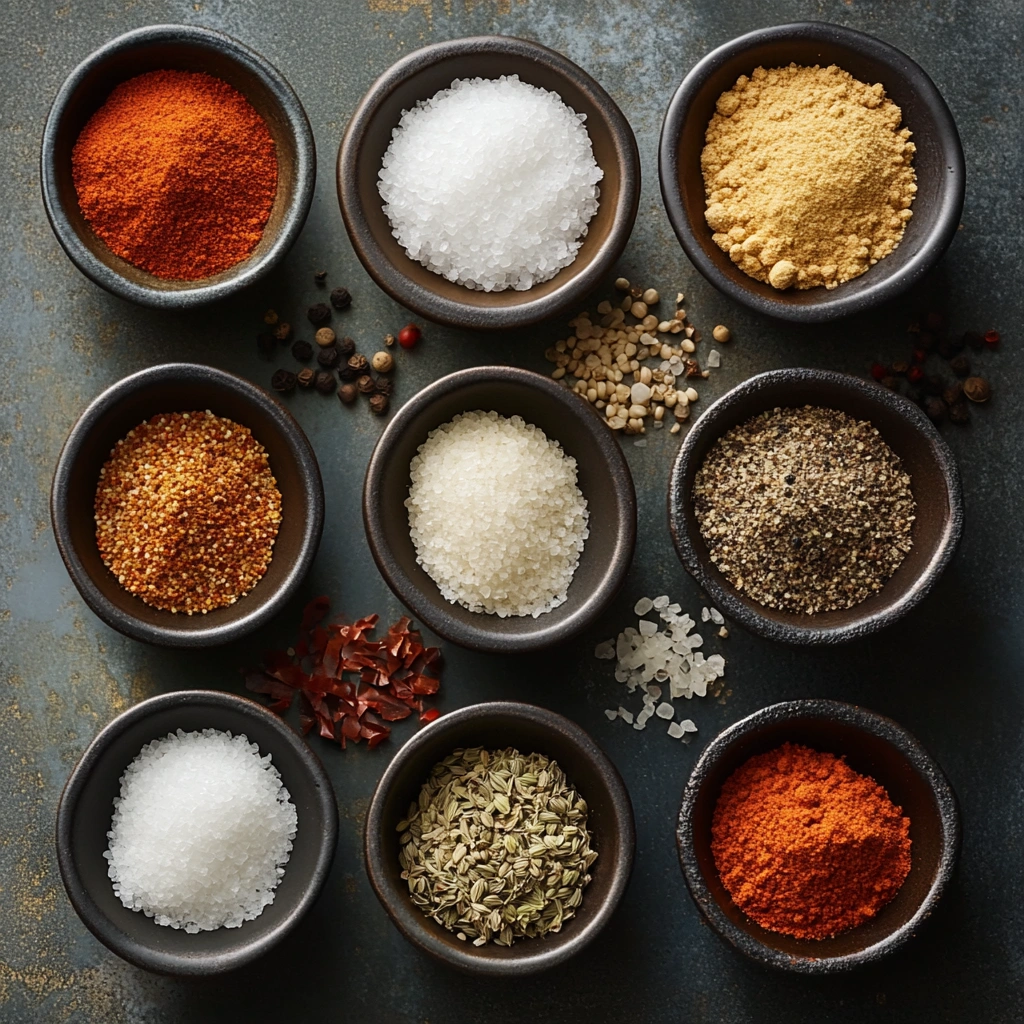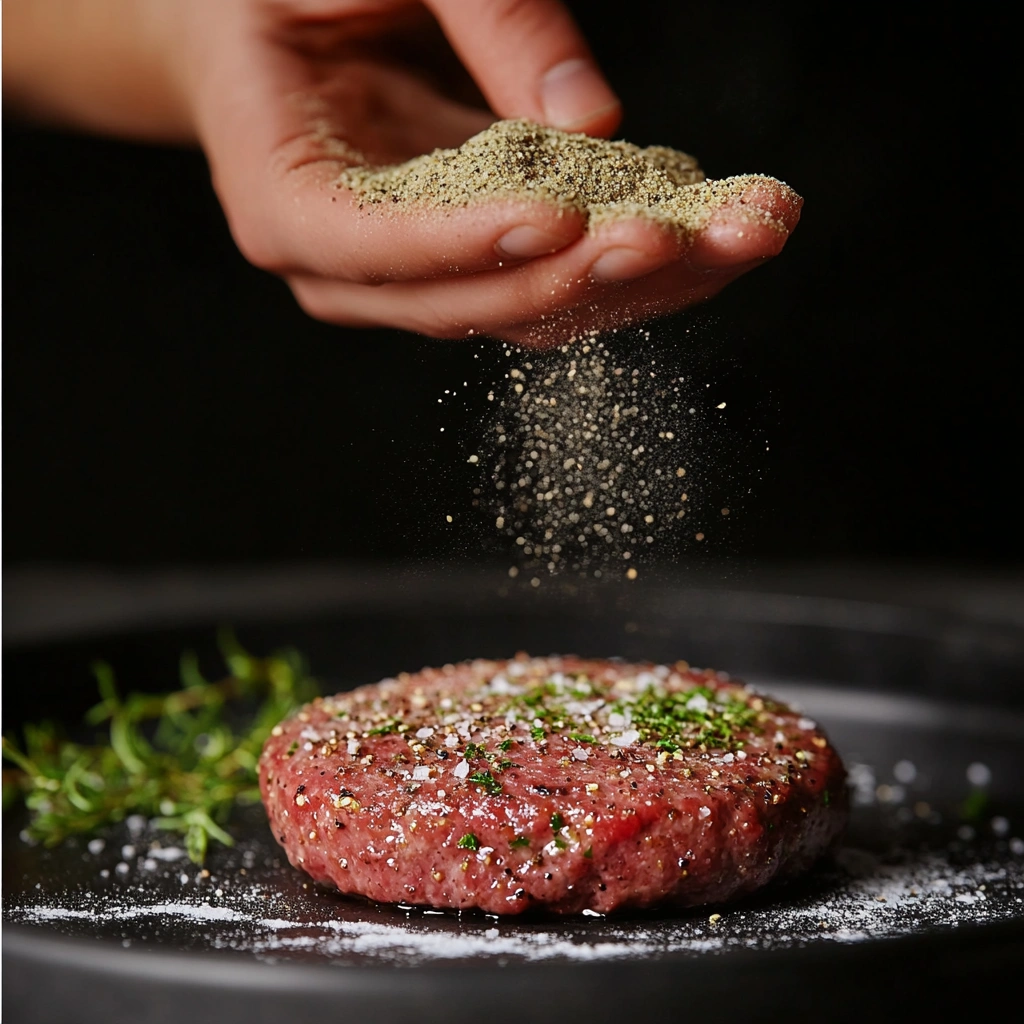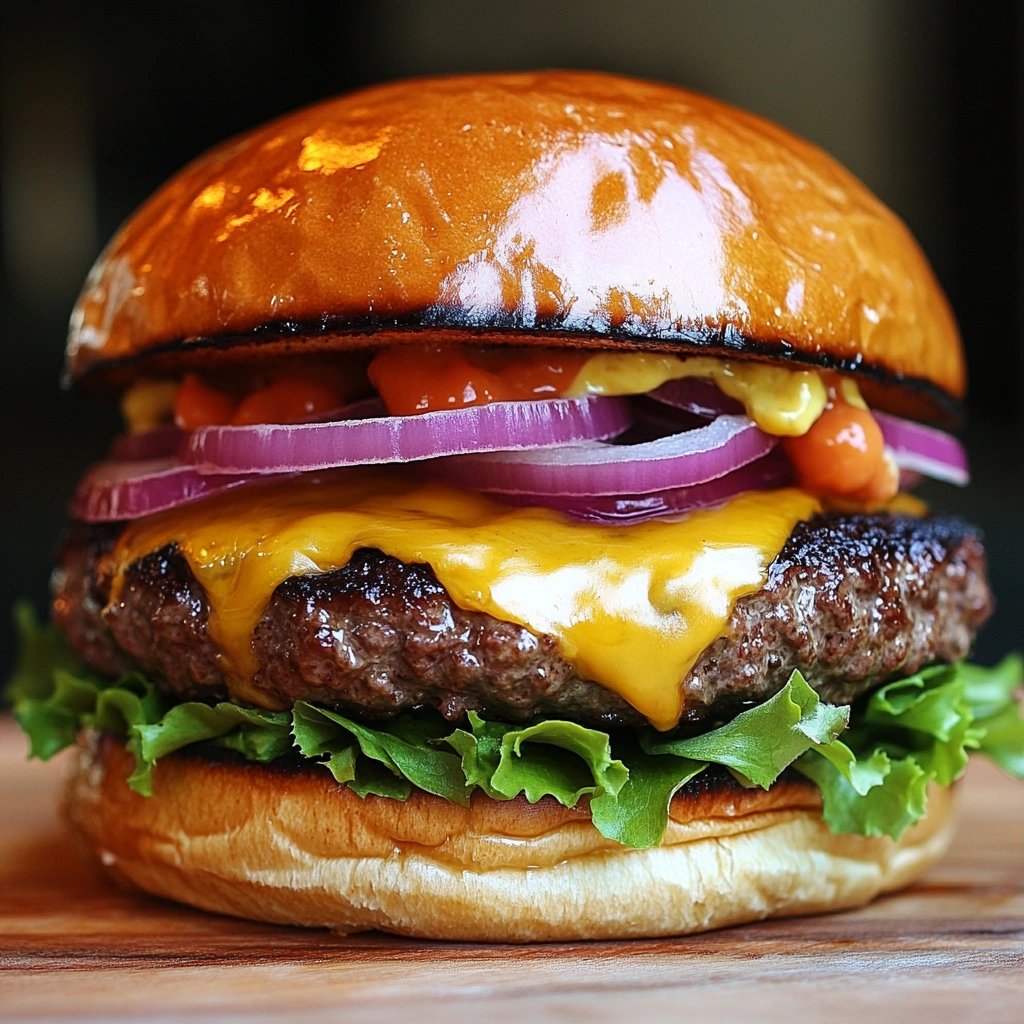A great burger is more than just juicy meat and fresh toppings. The real secret to an unforgettable burger lies in the seasoning. Without the right blend of spices and herbs, even the highest-quality meat can fall flat. In this guide, we’ll cover everything you need to know about burger seasoning, from crafting the perfect homemade blend to understanding the science behind why seasoning makes such a big difference.
Introduction to Burger Seasoning
Seasoning a burger is the key to turning a simple patty into a mouthwatering masterpiece. Whether you’re grilling in the backyard or cooking indoors, the right combination of spices can bring out the rich flavors of the meat and complement the toppings.
But what exactly is burger seasoning? At its core, burger seasoning is a mixture of spices, herbs, and sometimes salt that is used to enhance the flavor of ground beef or any other meat used in burgers. From classic combinations like salt and pepper to more complex blends featuring garlic, onion powder, paprika, and other seasonings, the right mix can elevate your burgers to restaurant-quality status.
Many people are unsure when or how much seasoning to use, and others rely on store-bought options. Let’s dive into the essential ingredients of a good burger seasoning.
Essential Ingredients for Burger Seasoning

When making your own burger seasoning, it’s important to have a well-balanced blend that will enhance, not overpower, the flavor of the meat. Here are the essential ingredients:
- Salt: The most important seasoning for any type of meat. It enhances natural flavors.
- Black Pepper: A must for adding a slight bite and depth to the seasoning.
- Garlic Powder: Adds richness without the sharpness of fresh garlic.
- Onion Powder: Complements the garlic with a subtle sweetness.
- Paprika: Adds a smoky flavor, especially good for grilled burgers.
Other great additions include smoked paprika, cumin, mustard powder, and sometimes brown sugar for a touch of sweetness. If you’re feeling adventurous, you can also include cayenne for a spicy kick, or even dried herbs like oregano or thyme.
How to Make Homemade Burger Seasoning

Creating your own burger seasoning is simple, cost-effective, and allows for customization. Here’s an easy recipe you can follow:
Ingredients:
- 2 tablespoons salt
- 1 tablespoon black pepper
- 1 tablespoon garlic powder
- 1 tablespoon onion powder
- 2 teaspoons paprika
- 1 teaspoon smoked paprika
- 1/2 teaspoon cayenne pepper (optional for heat)
- 1/2 teaspoon brown sugar (optional for sweetness)
Instructions:
- Mix all ingredients together in a bowl.
- Store in an airtight container. This blend will last for up to 6 months.
- Sprinkle generously on both sides of your burger patty before cooking.
Having this versatile seasoning mix on hand will save you time and ensure that every burger you make is packed with flavor. For those looking to learn more about seasoning burgers for grilling, check out this comprehensive guide on seasoning for outdoor cooking.
Store-Bought vs. Homemade Burger Seasoning
While it’s easy to whip up a homemade blend, you might wonder whether store-bought seasoning offers the same results. Store-bought options certainly offer convenience, and some brands even provide unique blends that are difficult to recreate at home. However, making your own allows for more control over the ingredients and customization for specific tastes and dietary needs.
Some of the best store-bought seasonings include:
- McCormick Grill Mates Hamburger Seasoning
- Weber Gourmet Burger Seasoning
- Montreal Steak Seasoning (also great on burgers!)
On the other hand, homemade seasoning offers the flexibility to adjust salt levels and choose organic or locally sourced spices. Plus, you can avoid preservatives and additives commonly found in store-bought blends. If you’re interested in a healthier option, try this homemade seasoning recipe for clean, wholesome ingredients.
How to Season Different Types of Burgers

Not all burgers are created equal, and the type of burger you’re making can impact your choice of seasoning. Here’s how to approach seasoning based on different kinds of burgers:
1. Beef Burgers
- Stick to classic combinations like salt, pepper, garlic, and onion powder.
- For a more robust flavor, add paprika and smoked paprika.
- Grill seasoning works well with beef as the fat in the meat carries the flavor beautifully.
2. Turkey Burgers
- Turkey is leaner, so it needs stronger seasoning to avoid tasting bland.
- Try adding ground cumin, garlic, onion, and even some chili powder.
- Since turkey has less fat, consider mixing in a bit of olive oil for moisture and flavor retention.
3. Plant-Based Burgers
- Season plant-based patties generously, as they typically don’t have the natural fat content of beef or turkey.
- Smoky flavors like paprika, chipotle powder, and garlic work well to enhance the overall taste.
4. Chicken Burgers
- Chicken burgers benefit from lighter, herb-based seasoning.
- Add dried oregano, thyme, and rosemary along with classic garlic and onion powder.
- A touch of lemon zest or juice brightens up the flavor of chicken patties.
Knowing how to tailor your seasoning to different kinds of burgers will help you achieve the best flavor, regardless of the protein you’re working with.
Special Dietary Considerations for Burger Seasoning
With increasing dietary restrictions and preferences, it’s important to have options that cater to various needs.
Low-Sodium Burger Seasoning
- Use herbs like rosemary, thyme, and oregano to replace the need for salt.
- A small amount of citrus zest can also enhance flavor without the need for sodium.
Gluten-Free and Allergy-Friendly Burger Seasoning
- Make sure all spices are gluten-free (some store-bought blends might contain gluten).
- Avoid common allergens like dairy and soy if needed.
Vegan and Organic Seasoning Options
- Opt for organic spices to avoid any pesticides or chemicals.
- Many standard spice blends are vegan, but be cautious with pre-made sauces or seasoning packets that could contain animal products.
For anyone looking to avoid salt entirely, a no-salt burger seasoning blend can be created by relying on stronger herbs and spices, such as smoked paprika and cumin, to bring out flavor without added sodium.
Expert Tips for Perfectly Seasoning Burgers
No matter what seasoning you choose, here are some expert tips to ensure the best results:
- Season Before Cooking: Always season your burger patties before they hit the heat. This ensures the seasoning has time to penetrate the meat, enhancing flavor.
- Season Both Sides: For even flavor distribution, apply seasoning to both sides of the patty.
- Let Patties Rest: After forming your patties, let them sit for 10-15 minutes. This helps the seasoning bind to the meat and prevents it from falling off during cooking.
- Don’t Overdo It: You want the seasoning to enhance the meat, not overpower it. Start with a small amount and adjust to taste.
Understanding when and how to apply your seasoning is just as important as the ingredients you use.
The Science Behind Seasoning Burgers
Seasoning does more than just add flavor—it actually affects the chemical composition of the meat, influencing texture and juiciness.
The Role of Salt
Salt is particularly important because it breaks down the proteins in the meat, which helps the patty retain moisture during cooking. This makes for a juicier, more tender burger. Additionally, salt enhances other flavors, making the seasoning more effective.
The Maillard Reaction
When a seasoned burger patty hits the hot grill, the heat triggers the Maillard reaction, a chemical process that gives the burger its distinctive crust and rich, savory flavor. The key to this reaction is having the right balance of spices and a high cooking temperature.
Regional and International Burger Seasoning Styles
Looking to switch up your burger seasoning? Try borrowing from different regions of the world for a new twist:
- American: BBQ rubs, Cajun spices, and smoked paprika are commonly used in American-style burgers.
- Mediterranean: Add a touch of oregano, garlic, and rosemary for a fresh, herbaceous flavor.
- Asian: Soy sauce, ginger, and garlic powder bring an umami punch to your burger.
- Latin American: Incorporate chipotle, cumin, and even cilantro for a zesty, smoky flavor.
Experimenting with global flavors can bring exciting new dimensions to your burger seasoning repertoire.
FAQ Section
- How much seasoning should I use per burger?
- A good rule of thumb is 1 teaspoon of seasoning per 6-ounce patty.
- Can I season frozen burger patties?
- Yes! Just season them while they’re still frozen, and the flavors will infuse as they cook.
- What’s the best seasoning for plant-based burgers?
- Go for bold flavors like smoked paprika, garlic powder, and chipotle for a tasty kick.
- Is it necessary to season both sides of the burger?
- Absolutely! For even seasoning, always coat both sides.
- Can burger seasoning be used for other dishes?
- Yes! Use your burger seasoning on grilled vegetables, chicken, or even roasted potatoes.
Conclusion
In conclusion, burger seasoning is the key to unlocking incredible flavors in every bite of your burger. Whether you opt for a store-bought blend or create your own homemade seasoning, the right mix of spices enhances the natural flavors of the meat and elevates the overall taste. By understanding how to season different types of burgers and experimenting with unique ingredients, you can easily turn an ordinary patty into a mouthwatering meal. Perfecting your seasoning technique ensures that every burger you make will be flavorful, juicy, and unforgettable. Happy cooking!


